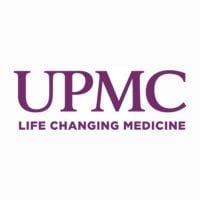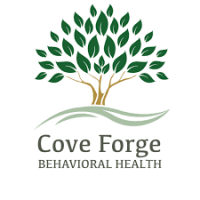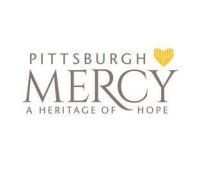UPMC Mercy
Drug Rehab Center in Pittsburgh, Pennsylvania
UPMC Mercy is a highly accredited drug rehab facility in Pittsburgh, Pennsylvania that has been providing compassionate, personalized care tailored to each individual's unique needs since 1847; offering everything from detox to inpatient and outpatient levels of care, as well as evidence-based interventions such as cognitive behavioral therapy (CBT) and 12-Step facilitation, with private health insurance often covering some of the services.
About This Pennsylvania Facility
UPMC Mercy, founded in 1847, is an Addiction Treatment Facility located in Pittsburgh, PA. This facility specializes in treating individuals suffering from various forms of addiction and substance abuse, including alcoholism, opioid addiction, drug addiction, and dual diagnosis. UPMC Mercy is accredited by the Joint Commission on Accreditation of Healthcare Organizations (JCAHO), the Substance Abuse and Mental Health Services Administration (SAMHSA), and holds a state license. With 34 beds available, UPMC Mercy offers a range of levels of care, including inpatient and outpatient treatment, detoxification services, drug rehabilitation, and dual-diagnosis treatment. They also provide aftercare support to help individuals maintain their sobriety and successfully transition back into their daily lives.
At UPMC Mercy, individuals struggling with addiction and substance abuse can expect comprehensive and personalized treatment services. The facility offers detoxification services to help safely manage withdrawal symptoms during the early stages of recovery. Inpatient treatment programs provide 24/7 care and support in a structured environment, allowing individuals to focus on their recovery journey. Outpatient programs offer flexibility for those who prefer to receive treatment while continuing to live at home and attend to their daily responsibilities. UPMC Mercy also specializes in dual-diagnosis treatment, addressing both addiction and mental health disorders simultaneously. Through their various services, UPMC Mercy strives to provide quality care to help individuals overcome addiction and build a healthier, substance-free life.
Genders
Ages
Modality
Additional
Accreditations
State License
SAMHSA

JCAHO
Conditions and Issues Treated
Using both legal medications and illegal substances in order to maintain an addiction is substance abuse. If you are taking more of your prescription, or earlier than the prescribed time interval between doses than is directed you may be abusing that medication. If you are obtaining legal medications illegally in or near Pittsburgh, PA, you may be suffering from substance abuse.
Illegal substances can become addictive after a single use and lead rapidly to substance abuse. The professionals at UPMC Mercy are here to help.
Opioid addiction treatment helps people addicted to opioids in Pennsylvania curb their drug use. The selection of a treatment setting depends on the severity of the addiction. Mild cases are usually treated in outpatient facilities; severe cases need hospitalization or treatment in a residential facility. Doctors use medicines along with counseling and behavioral therapies to treat the addiction. The treatment includes medication, counseling and therapy. It can also include group counseling, individual counseling and family counseling.
Conditions such as anxiety, depression, schizophrenia, bipolar disorder are part of mental illness. This may occur that opioid abuse and vice versa are induced by mental illness. Diagnosing a concurrent diagnosis or co-occurring condition at UPMC Mercy is essential to understand the addiction better.
Levels of Care Offered at UPMC Mercy
This center offers a variety of custom treatment tailored to individual recovery. Currently available are Aftercare Support, Detox, Drug Rehab, Dual-Diagnosis, Inpatient, Outpatient, with additional therapies available as listed below.
Detox is a drug rehab process that begins before the actual drug rehab treatment. It is used to remove any residual toxins left in your body (and brain) after using drugs, and it is used with the intent to help you or your loved one complete drug rehab.
If you are addicted to opiates like heroin, methadone, or prescription painkillers, you will detox with medication. This is because the withdrawal symptoms are often more intense and uncomfortable for an opiate addict than for someone who has abused or is dependent on other drugs, like cocaine.
Inpatient programs are intensive regimes that require individuals suffering from serious addictions to admit themselves into a controlled environment. Inpatient programs in Pennsylvania generally span over 28 days to six months. The first step in an inpatient program is medically assisted detox. Doctors and addiction specialists at UPMC Mercy monitor the individual’s vital signs as the drugs leave their system. Some inpatient rehab programs also provide counseling for family members to provide encouragement and emotional support. In inpatient programs, patients have access to 24-hour medical supervision.
To assist with alcohol or opioid abuse, or a co-occurring condition, UPMC Mercy offers an outpatient treatment program. For their rehabilitation and other services, the Pennsylvania patient will go to the treatment center, yet return home every night. After most of the program is completed, the level of mandatory participation reduces.
Aftercare comprises services that help recovering addicts readjust to normal day-to-day Pennsylvania activities. It can last a year or even longer. Services include individual and family counseling, medications to reduce cravings, and treatment of psychiatric and other medical conditions. Aftercare support begins once you have completed earlier stages of treatment.
Therapies & Programs
Therapy plays a major role in addiction recovery. It encourages patients to get to the root of their addiction and learn how to better handle the issues that led to using. Therapy can be conducted in group and one on one settings. In UPMC Mercy‘s individual therapy, the patient meets with the therapist in a one on one setting. This allows them to focus on the underlying issues of addiction and come up with solutions to prevent future abuse.
One of the most common areas of stress and damage during addiction is in intimate relationships. Addiction involves everyone in a family, not only the addict. Couples therapy can rebuild trust and joy that may have been damaged.
When the whole family is involved, healing can be far more successful. Family counseling involves genetic factors to the family of the addict. This offers the means to cope with addiction and its underlying emotional disorders for loved ones. It is a helpful method for addicts in helping to adjust to sober living.
Trauma therapy allows people who struggled with a past trauma to face the situation and learn to overcome the situation. Many people who went through trauma early on, struggle with addiction later in life. By addressing the trauma and moving past the issues, it can help someone attending treatment at UPMC Mercy in Pittsburgh, PA move forward with their recovery and begin to take a better hold of their sober future.
REBT stands for rational emotional behavior therapy. This is a type of cognitive behavioral therapy, or CBT, that combines images with thoughts and behaviors. It allows for deeper education and understanding of what one can do to help themselves with recovery. It is a deep sense of self-help education managed by UPMC Mercy that lets someone recovering work through issues on their own, knowing they have the support of people around them if they need it.
Training someone on improved life skills allows for someone recovering from an addiction to feel more capable at taking care of him or herself. The skills taught at UPMC Mercy in Pittsburgh, PA are daily skills that give a better recovery foundation by simply giving someone the tools they need to survive. They include communicating, time and money management, career guidance, and more.
Addiction commonly results in malnutrition, vitamin and mineral deficiencies. This can be reflected in weight loss, hair loss or hair changes, skin irregularities. Eating correctly to replace lost vitamins and minerals while balancing your diet can build confidence. UPMC Mercy will help you get back on track.
Nicotine Replacement Therapy (NRT) uses low-dose nicotine drugs to eliminate tobacco addiction from smokers. Without smoking, the treatment at UPMC Mercy in Pittsburgh, PA brings nicotine into the bloodstream to minimize dependence on the physical habit, while detoxing the body from the attachment. To alleviate withdrawal symptoms, it also helps abusers to adapt to lower doses over time.
Payment Options Accepted
For specific insurance or payment methods please contact us.
Is your insurance accepted?
Ask an expert, call (888) 674-0062
Additional Details
Specifics, location, and helpful extra information.
Pittsburgh, Pennsylvania 15219 Phone Number(412) 232-4080 Meta DetailsUpdated November 25, 2023
Staff Verified
Patient Reviews
There are no reviews yet. Be the first one to write one.
Pittsburgh, Pennsylvania Addiction Information
Pennsylvania ranks 14th in the nation for drug-related deaths. More than 10% of all deaths in Pennsylvania have been related to drugs and alcohol. 30% of Pennsylvania youth reportedly drink alcohol monthly, with more than 20,000 teenagers having an alcohol problem. The rate of opioid misuse in Pennsylvania is double the national average.
Pittsburgh, Pennsylvania, has been hit hard by the opioid epidemic. About 24,000 people in Pittsburgh struggle with drug addiction. In the city, there were 9,813 overdose deaths in 2016. Alcohol is a factor in more than 38% of all traffic fatalities in Pittsburgh. There are plenty of drug treatment centers in the area to help you get your life back on track.
Treatment in Nearby Cities
- Palmerton, PA (231.1 mi.)
- Middletown, PA (172.4 mi.)
- Birdsboro, PA (220.7 mi.)
- Littlestown, PA (160.6 mi.)
- Lancaster, PA (196.2 mi.)
Centers near UPMC Mercy
The facility name, logo and brand are the property and registered trademarks of UPMC Mercy, and are being used for identification and informational purposes only. Use of these names, logos and brands shall not imply endorsement. RehabNow.org is not affiliated with or sponsored by UPMC Mercy.











